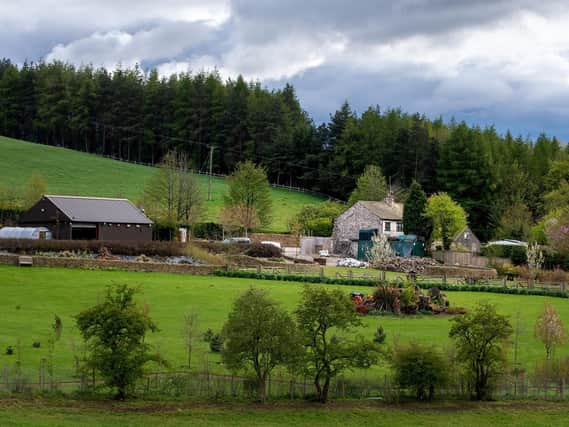Nutter Cote Farm appeal day two: Inquiry hears reasons for rejection of canine hydrotherapy centre plans by Craven Council during evidence and questioning


David Eckersall has taken Craven Council to legal appeal and an inquiry into the authority's rejection of several applications relating to Nutter Cote Farm in Thornton-in-Craven, near Skipton, is being held this week by HM Planning Inspectorate.
One issue of contention is Mr Eckersall's proposal to build a canine hydrotherapy centre on his land aimed at infirm, overweight and post-operative dogs to offer low-impact exercise.
Advertisement
Hide AdAdvertisement
Hide AdCraven Council refused his proposal and claimed it was an 'incompatible and unsustainable development', citing reasons including environmental harm, the impact on the local landscape character due to the design of the pool building, and issues over road safety.
Mr Eckersall's lawyer John Hunter argued that the business would have both economic and social benefits for the local area, and that there was demand for such a facility among dog owners.
Planning consultant David Coates, who advised the council on the application, agreed that though there could be benefits, these had to be considered in the context of whether the location was appropriate.
He agreed that the land attached to what was once an 18th-century laithe house and farm was a greenfield site outside of a defined settlement, and that highways officers' concerns centred around a lack of visibility for drivers from the proposed access point off the main road.
Advertisement
Hide AdAdvertisement
Hide AdThe site of the hydrotherapy building was described as 'highly visible' and an 'intrusive, alien' feature on a sloping field.
The planning officers' report acknowledged that that the building was designed to replicate an agricultural structure, but that there was a lack of screening and potential tree loss.
In response, Mr Coates reiterated that the building's location and elevation were considered intrusive rather than the design and appearance of it, adding that it was not linked to any other traditional farm buildings and was stand-alone.
Mr Hunter questioned whether Craven Council's decision was in accordance with the policies of their Local Plan, which are generally supportive towards rural businesses.
Advertisement
Hide AdAdvertisement
Hide AdMr Coates also gave evidence on a further appeal by Mr Eckersall regarding the prospective rebuilding of Nutter Cote Farm itself, a 19th-century extension to the original laithe house which he illegally demolished in 2016, severely damaging the adjoining cottage. Mr Eckersall was fined £20,000 in court for this offence, despite claiming that he thought the property, which he bought a year earlier, had become dangerously unstable during permitted work to build a modern extension.
Several applications to rebuild the farmhouse have been refused over concerns it would not be historically authentic, and Mr Hunter's case centres on a belief by his client that Craven Council were unsupportive of his plans and that any future application would be likely to fail. In response the council claim that the submissions have lacked key detail and information regarding building materials and layout, with the most recent being deemed invalid.
The third aspect of the appeal concerns an enforcement notice issued in 2018 for 11 alleged planning breaches, including the erection of drystone walls on the site and the presence of a static caravan which Mr Eckersall and his wife were living in while supervising the building work.
Mr Hunter queried why it was in the public interest to issue the notice, accusing the council of 'coming down like a ton of bricks' on Mr Eckersall. Mr Coates replied that the breaches were accumulated over a long period of time and that taking action after the first offence would have been justifiable.
The inquiry is due to conclude on Thursday and a decision by the appointed inspector will be issued later this summer.
